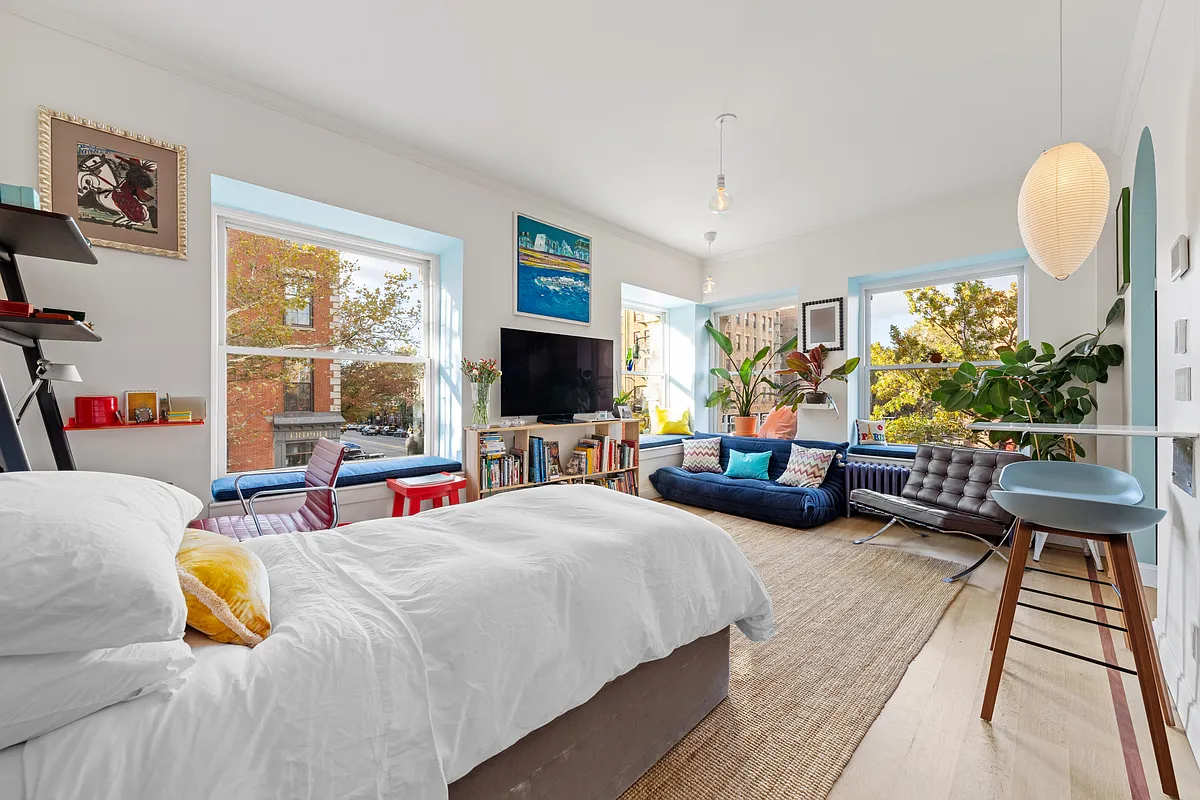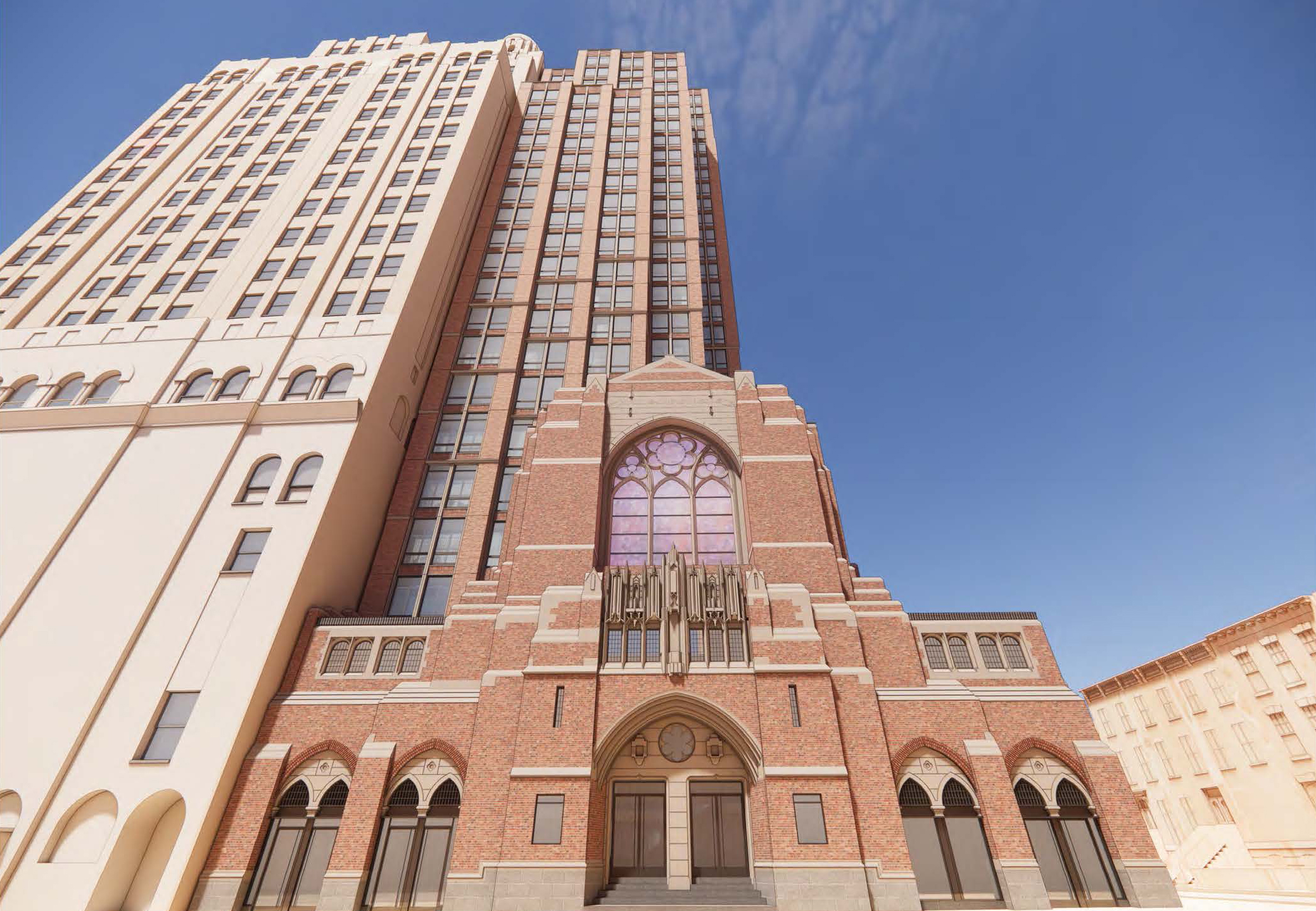Brooklyn Prices Up 8% in '06, Appraiser Says
According to appraisal firm HMS Associates, the average sales price of single- and multi-homes in Brooklyn rose 8 percent in 2006, despite a drop in the number of transactions. “The Brooklyn residential market was very strong in 2006,” says HMS Associates founder Sam Heskel. “We expect 2007 will be another good year, but home prices…


According to appraisal firm HMS Associates, the average sales price of single- and multi-homes in Brooklyn rose 8 percent in 2006, despite a drop in the number of transactions. “The Brooklyn residential market was very strong in 2006,” says HMS Associates founder Sam Heskel. “We expect 2007 will be another good year, but home prices will come back down to earth somewhat, with transactions up moderately.” In Brownstone Brooklyn, the biggest price increase came in Brooklyn Heights, where prices jumped 16.6 percent, from $1,831,857 to $2,136,891. The study also cites big rises in Boerum Hill, Carroll Gardens, Williamsburg, Bay Ridge, Park Slope, Greenpoint, and Crown Heights.
Brooklyn Home Prices Rose Nearly 8% in 2006 [Market Wire]
Photo by Adam Brock





Interesting. I see the exact opposite happening all over Brooklyn and NYC – poor and lower middle class people moving further and further away. I don’t see that changing any time soon – unless all those “new” folks in Williamsburg, South Bronx, Bushwick, Harlem, FG, Clinton Hill, Bed Stuy start selling and moving away.
i personally hope you are right that it becomes such that a cop or teacher can afford a decent place in new york, but i just don’t see it as a reality. it’s not a reality in san francisco. nor is it a reality in san diego or boston. why should it be one here?
“and wt economist…why do you think that prices must come down to what everyone can afford vs wages increases so that it becomes more affordable?”
Because wage inflation is infinitely worse to the government than other inflation and they will fight it at all costs, even if it means some level of deflation on assets. Wages will catch up somewhat, but talk all you want about culture, and us being a deal compared to Europe, housing prices have to fall back in line with wages at some point, and that will mean a little give from asset value. Does it mean a cop will be able to afford a brownstone on the Promenade? No. But those cops may be able to afford a condo or co-op again.
just as the 50’s-80’s were times of people fleeing the cities, thus having a huge impact on home prices in cities, i think we are now, in the last 5 or so years seeing a significant reversal of this. i really do think this is something to consider.
when you compare new york to many of the major european capitals, we are still a deal in terms of real estate prices. how do you factor this into the equation? i’ll still agree that prices may be slightly too high, but i really don’t think it’s all that significant when put in line with the rest of the u.s. and the world for that matter.
places with culture, vibrancy and now low crime, amazing shopping, etc. have become quite valuable commodities in our lives these days…more than they ever have been i would argue, as our lives become increasingly more “tech” oriented. i think people are willing to, and will continue to want to pay a premium for such things, and this is a relatively new phenomenon as more and more people wish to live in an urban environment. we are witnessing a very significant change in our society and while new york has always been a great urban center, i think that more and more of the general population look at it as something to strive for. we are the best in many areas…the model in other ways for the rest of the country, and we should not discount this fact. these things affect prices just as much as stock markets, inflation, sub prime, etc.
Here is a nice overview of the 1980s bubble and subsequent bust, extracted from NY Times articles.
http://www.youdovoodoo.com/80sbubble.htm
(hasn’t nyc always been more expensive that the rest of the country for 100 years?)
Sure, and it will be for the next hundred. But given that, prices are too high. Add a zero to the price of houses, making them ten times more expensive than they are. Or too zeros, making them 100 times more expensive. Would you still make the same argument? At some point it is too expensive, even for NY.
I thought we passed that point back in 2003.
and wt economist…why do you think that prices must come down to what everyone can afford vs wages increases so that it becomes more affordable?
hasn’t nyc always been more expensive that the rest of the country for 100 years?
back when this townhouse was 300K in 1987, you could have purchased an 8 bedroom, 5 bath “mansion” in a nice area anywhere outside the city for that kinda money.
(Does anyone remember how Brownstone Brooklyn fared during the last housing slump?)
Very well. At the peak of the last bubble in 1987, a rowhouse identical to mine sold for $300,000. At that point, we figured we’d save up some money here and move elsewhere where housing prices were sane. Sanity returned, and we bought ours for $209,000 in 1994, after waiting six months for our offer to be accepted. Of course, you had seven years of inflation/wage increases to make housing more affordable, in addition to the nominal price decline.
At that time, the entire baby boom was moving out of the singles and couples phase into the parenting phase. So unlike that (perhaps 50% real) haircut for houses, condos and coops really crashed. Friends who had bought them had to save for years, packed into one bedrooms with two kids, just to be able to sell at a loss and walk away with nothing.
In newly gentrified areas, condos and coops, especially recent conversions, became unsalable. People ended up being one of just a few owners in a rental building, until they gave up and handed back the keys to the landlord for a fraction of their purchase price.
My neighborhood has been occupied by cops, teachers, and small business people since it was built 100 years ago. But with closer in parts of the metro area becomming more valuable relative to the suburbs, I could see my rowhouse being worth $600,000. Identical houses have been selling for $1 million.
There may be enough hedgies and CEOs to occupy Manhattan, but not the whole metro area. Sooner or later, housing will have to sell for what the rest of us can afford.
Why has the “zestimate” on my home then, plumeted on Zillow, in the past year (it went down by about 90,0000) in Greenpoint (2 family)